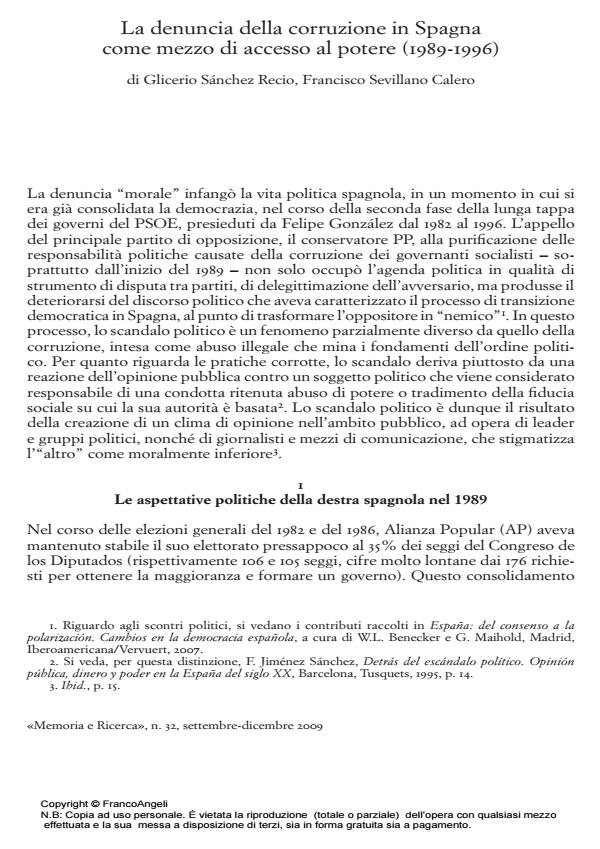La denuncia della corruzione in Spagna come mezzo di accesso al potere (1989-1996)
Journal title MEMORIA E RICERCA
Author/s Recio Glicerio Sánchez, Calero Francisco Sevillano
Publishing Year 2009 Issue 2009/32
Language Italian Pages 16 P. 79-94 File size 308 KB
DOI 10.3280/MER2009-032006
DOI is like a bar code for intellectual property: to have more infomation
click here
Below, you can see the article first page
If you want to buy this article in PDF format, you can do it, following the instructions to buy download credits

FrancoAngeli is member of Publishers International Linking Association, Inc (PILA), a not-for-profit association which run the CrossRef service enabling links to and from online scholarly content.
The denunciation of corruption as a means of gaining power in Spain (1989-1996) - This article examines the public denunciation of political life in Spain during the second period of the long years of PSOE government, presided over by Felipe González from 1982 to 1996. During those years, with a consolidated democracy in place, the main opposition party, the conservative PP, called on the socialist leaders to deal with the corruption among those holding political office - particularly from the beginning of 1989. Not only did the denunciation of the various cases of corruption and of the "dirty war" against ETA terrorism occupy the political agenda as a means of challeng-ing and discrediting the government, but it also led to a "corrosion" of the political discourse that had characterized the democratic transition in Spain. With regard to these events in recent political life in Spain, the article emphasizes that political scandal is a slightly different phenomenon from corruption, understood as an abuse of the law that undermines the political system.
Keywords: Spain, XX century, Democracy, Political parties (PSOE, PP), Corruption, Political scandals
Recio Glicerio Sánchez, Calero Francisco Sevillano, La denuncia della corruzione in Spagna come mezzo di accesso al potere (1989-1996) in "MEMORIA E RICERCA " 32/2009, pp 79-94, DOI: 10.3280/MER2009-032006